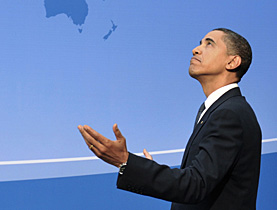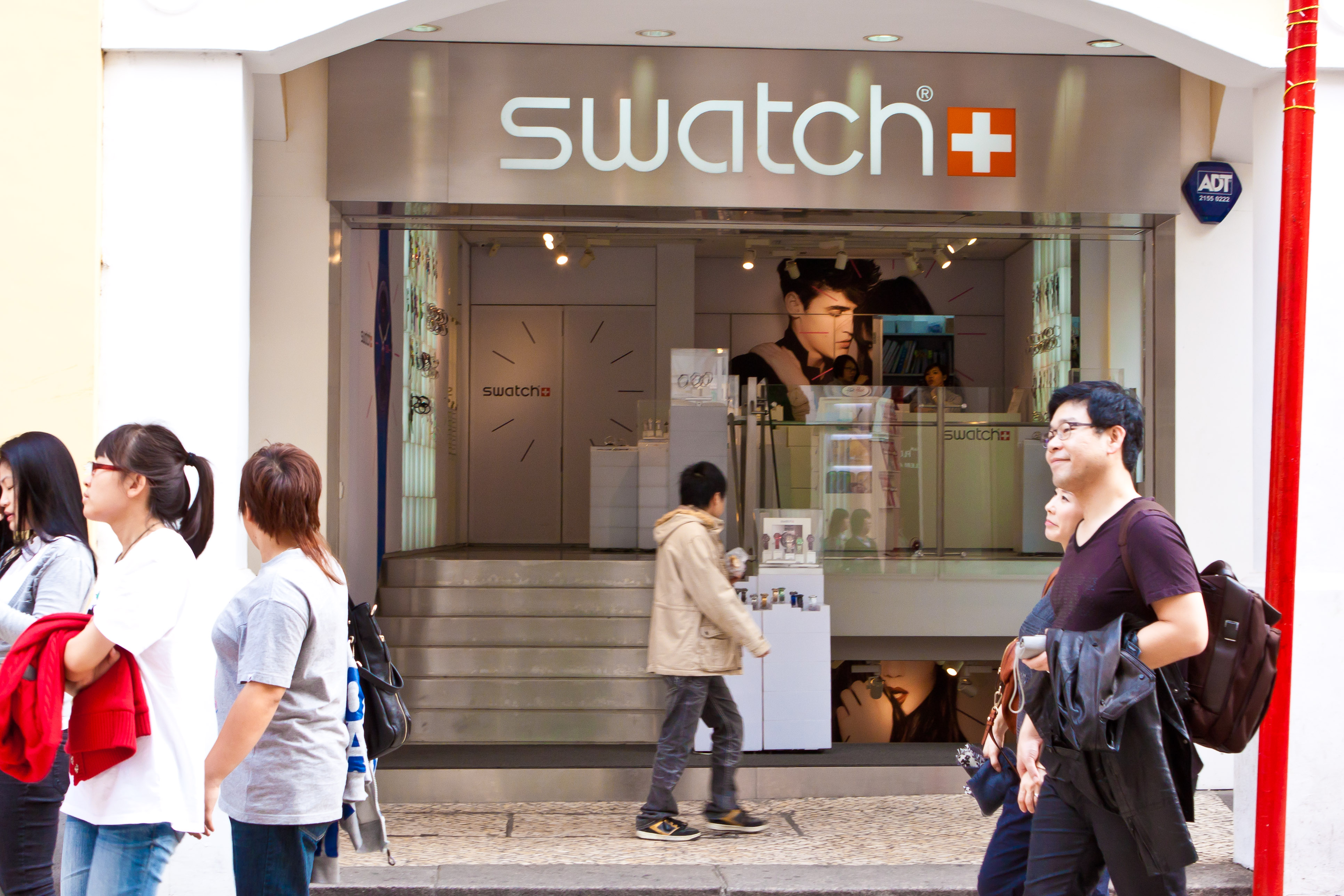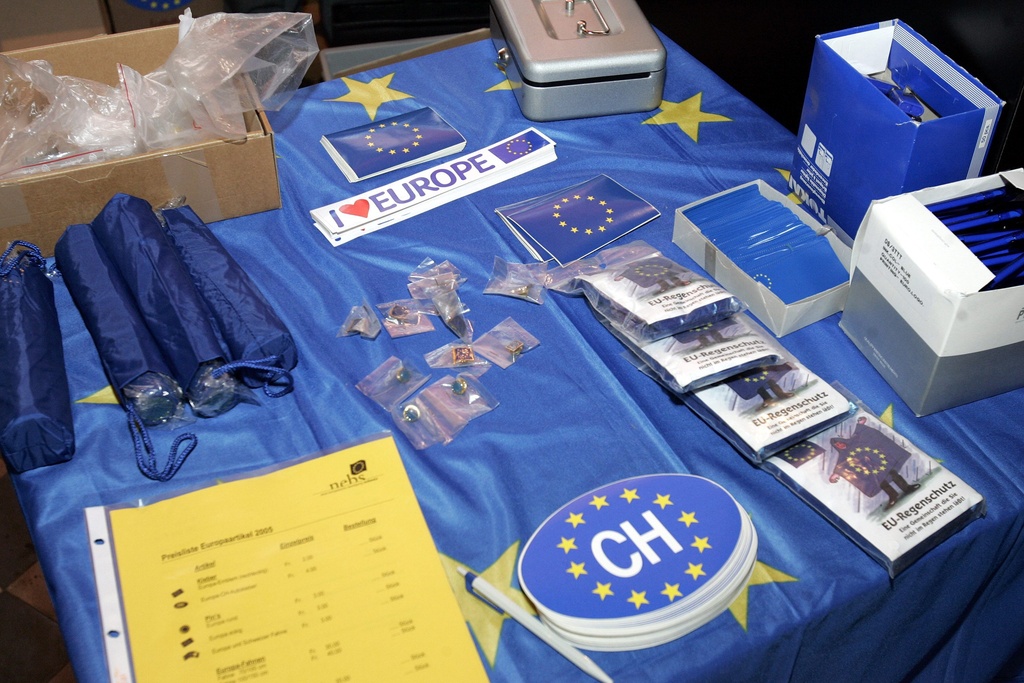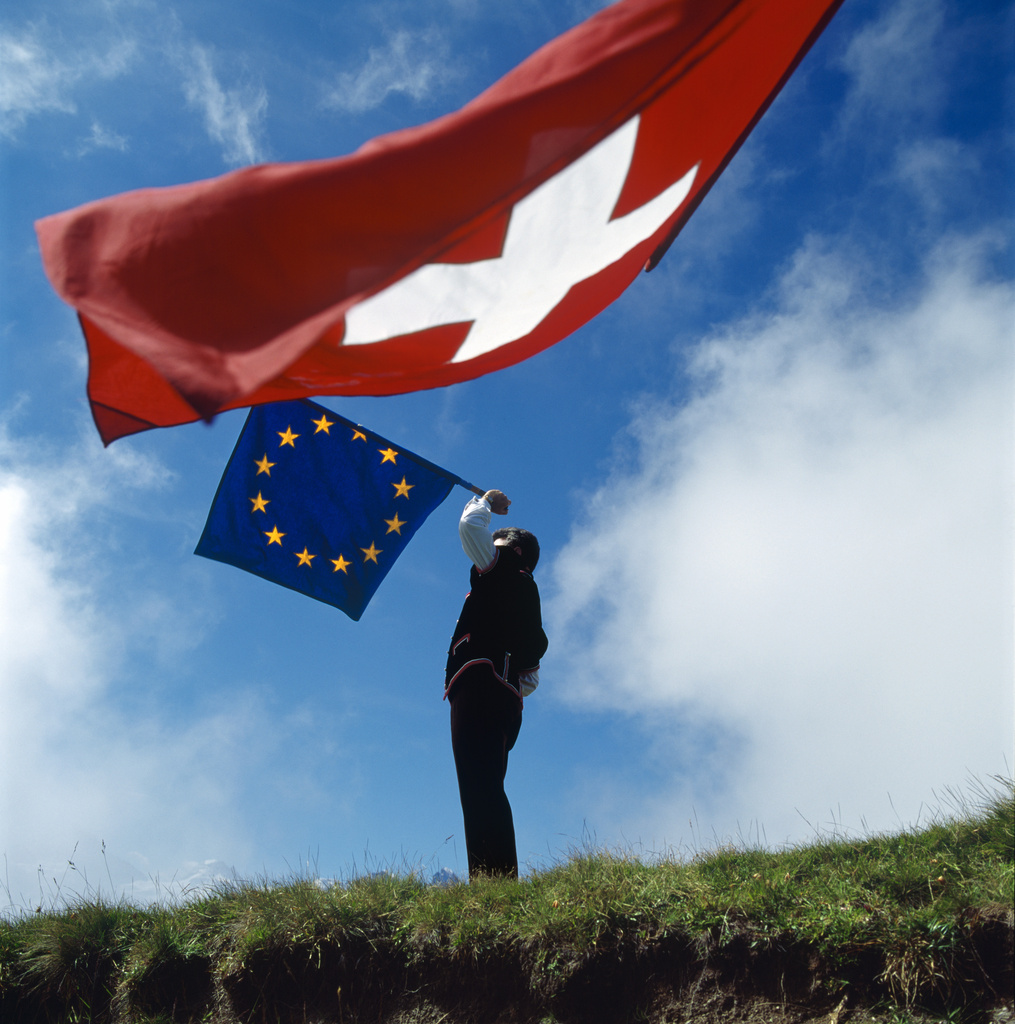EU peace prize highlights achievements

The Swiss government has congratulated the European Union on being awarded the 2012 Nobel Peace Prize, saying that this “recognised the essential role” which the EU had played in the peaceful development of the continent.
“In the pursuit of such objectives as peaceful coexistence, support for people in need, combating poverty, and respect for human rights and democracy, Switzerland and the EU share a whole series of values that are common to the peoples of Europe,” says the message from the foreign ministry, quoted by the Swiss News Agency.
This year’s Swiss president, Eveline Widmer-Schlumpf, has for her part sent congratulations to Herman van Rompuy, the president of the European Council, and to José Manuel Barroso, the president of the European Commission, the agency added.
Swiss analysts said they were surprised by the decision announced on Friday, but found it a well-deserved reminder of the body’s accomplishments.
“I think it makes sense if the [Nobel committee] is trying to state that it’s important to underline all that the EU stands for, and that it doesn’t just stand for financial stability but also for much more basic political ideals on the European continent,” Laurent Goetschel, an expert in European affairs from Basel University, told swissinfo.ch.
The EU has been in the running for the prize for many years, on the basis of its achievements as a “successful peace project”. The Oslo-based Nobel committee praised the 27-nation union for its rebuilding efforts after World War Two and for its role in helping to stabilise former communist countries after the fall of the Berlin Wall in 1989.
Notable achievements abound
A Swiss government expert in peace studies and conflict mediation, who asked to remain anonymous, told swissinfo.ch that the EU also deserves recognition for more recent achievements, such as the development work it has done in Africa and Asia and the success it has had in bringing many previously economically weaker economies, such as Poland and Ireland, into the EU fold.
He said these countries had experienced an economic boom to a certain extent because of the EU’s efforts to bring everyone up to a certain level.
“Now, of course, we’re forgetting this a bit today for evident reasons, because we’re seeing the other [economic] effects. But that still has major merit that we sometimes have a tendency to forget.”
The EU had previously been nominated for the Nobel Peace Prize for such achievements as cementing French-German unity, consolidating democracy in southern Europe and drawing eastern European countries into cooperation with the rest of Europe, according to Norwegian public broadcaster NRK.
Facing reality
The EU’s selection as this year’s Peace Prize winner comes at an interesting time because of international debate over whether the union, and particularly its common euro currency, can continue to exist in the context of the European debt crisis.
Goetschel notes that the accomplishments for which the EU was specifically recognised are not in dispute and will forever be seen as important milestones along the road to European peace. He specifically points to the importance of the EU’s political and financial role in solving internal conflicts that arose in many European countries after the fall of the Berlin wall.
However, he acknowledges the challenges it currently faces.
“It doesn’t help to solve the problems that we have today,” he says. “Many problems still need to be worked out with regard to the fiscal union. The countries must work better together with regard to taxes, finances, and financial politics, and those don’t really have much to do with the reason for the prize, but on the other hand, it’s certainly a welcome sign of solidarity from a somewhat unexpected source and that underlines the positive side of the EU process.”
“Symbolically, I find that very important. And many people may have the tendency to forget that, especially amid the current debates.”
Le Temps, Geneva:
“What better way to remind people of the two world wars in Europe and the great foresight of the founding fathers of the EU, which has allowed generations to avoid the horror of the battlefield? What stronger message for an old continent mired in its worst financial crisis in recent history…than praise from the Nobel committee – composed ironically of non-EU citizens – of the capacity of the EU to embody human rights, freedom, democracy and reconciliation?”
Tages-Anzeiger, Zurich:
“Why is the peace prize being awarded in 2012? The committee missed earlier [and more fitting] moments and is now honouring the EU at a time when quarrels between individual members are threatening to escalate. … In this situation, the message from Oslo seems more like a warning than a congratulatory speech.”
Der Bund, Bern:
“The EU is the most important peace project in history; that tends to be forgotten in small Switzerland, which is pre-occupied with tax and airport deals, bilateral agreements, and, in particular, itself. … Odd, however, is the timing of the award. It seems like the committee wants to give the EU juggernaut a pat on the back for moral support.”
Neue Zürcher Zeitung, Zurich:
“The EU deserves the award … [but] the prize is primarily a tribute to the institutions, the presidency, the commission and the parliament – and, indirectly, to politicians who currently act in a petty and technocratic way rather than ‘visionary’ and historically-aware one. But the award probably won’t warm the hearts of the unemployed in Greece and the taxpayers paying out of solidarity in Germany.”
Updated Oct 13, 2012

In compliance with the JTI standards
More: SWI swissinfo.ch certified by the Journalism Trust Initiative






You can find an overview of ongoing debates with our journalists here. Please join us!
If you want to start a conversation about a topic raised in this article or want to report factual errors, email us at english@swissinfo.ch.